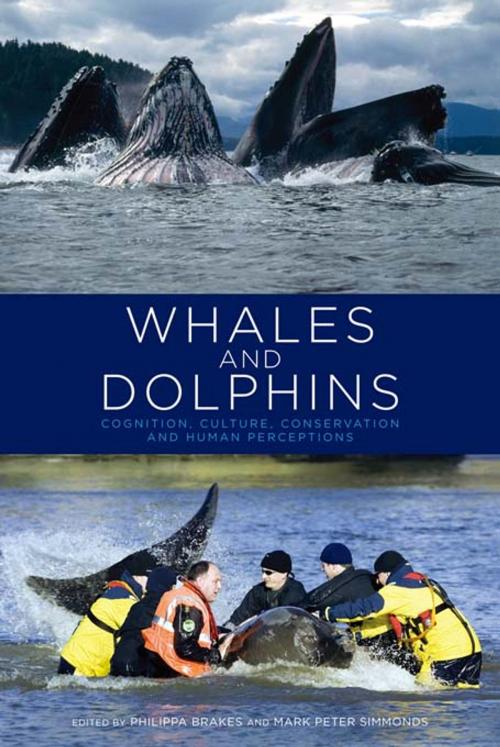Whales and Dolphins
Cognition, Culture, Conservation and Human Perceptions
Nonfiction, Science & Nature, Science, Biological Sciences, Environmental Science| Author: | ISBN: | 9781317974680 | |
| Publisher: | Taylor and Francis | Publication: | September 13, 2013 |
| Imprint: | Routledge | Language: | English |
| Author: | |
| ISBN: | 9781317974680 |
| Publisher: | Taylor and Francis |
| Publication: | September 13, 2013 |
| Imprint: | Routledge |
| Language: | English |
Whales and dolphins are icons for the conservation movement. They are the most conspicuous ambassadors for entire marine ecosystems and possibly even for the biosphere as a whole. Concurrent with our realisation of impending threats to their environment is a growing scientific understanding of the social and cognitive complexity of many of these species.
This book brings together experts in the relevant diverse fields of cetacean research, to provide authoritative descriptions of our current knowledge of the complex behaviour and social organization of whales and dolphins. The authors consider this new information in the context of how different human cultures from around the world view cetaceans and their protection, including attitudes to whaling. They show how new information on issues such as cetacean intelligence, culture and the ability to suffer, warrants a significant shift in global perceptions of this group of animals and how these changes might be facilitated to improve conservation and welfare approaches.
Whales and dolphins are icons for the conservation movement. They are the most conspicuous ambassadors for entire marine ecosystems and possibly even for the biosphere as a whole. Concurrent with our realisation of impending threats to their environment is a growing scientific understanding of the social and cognitive complexity of many of these species.
This book brings together experts in the relevant diverse fields of cetacean research, to provide authoritative descriptions of our current knowledge of the complex behaviour and social organization of whales and dolphins. The authors consider this new information in the context of how different human cultures from around the world view cetaceans and their protection, including attitudes to whaling. They show how new information on issues such as cetacean intelligence, culture and the ability to suffer, warrants a significant shift in global perceptions of this group of animals and how these changes might be facilitated to improve conservation and welfare approaches.















